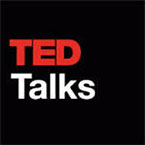Norm Letvin, professor of Medicine at Harvard Medical School died in the early morning of memorial day, the 28th of May, 2012 at the age of 62. We became close friends, almost from the moment we started to work together in 1994. That year I became the chairman of the Scientific Advisory Committee of the International AIDS Vaccine Initiative (IAVI) and for the eight years the founding SAC was in office, Norm was the one scientist I could always rely on for honest and unbiased scientific advise. He was the one among others who promoted the original poxvector-based HIV vaccine programs of Andrew McMichael of Oxford University and David Ho of the Aaron Diamond AIDS Research Center and helped to shape these programs. Norm was an exceptional personality, combining an immense musical talent, showing his theatrical as well his emotional side, with the uncomprimising rigor of the best of science. Norm was also a very modest man, most likely due to his upbringing in a close-nit family of modest means; he regularly reminded me to realize how lucky we both were and how thankfull we should be, for the opportunity to spend our lives doing what we liked most: doing basic science in search of a treatment and a vaccine against AIDS.
Norm was born December 22, 1949 in Detroit. Norm worked professionally as a musician in high school. Norm Letvin went to Harvard in 1967 and graduated from Harvard University in 1971. He tutored clarinet students at Harvard to pay for his college expenses. He told me that he got to know Leonard Bernstein in those days and sat in on his famous Norton lectures together with his future spouse, Marion Stein. Norm subsequently chose to go to medical school in stead of pursuing a professional career as a clarinetist. How good a clarinetist he was in the eyes of his musical peers may be illustrated by his chamber music concert of March 26, 1974 with Larry Berman on piano and Yo-Yo Ma on cello. Norm started his clarinet studies with Vincent Melidon of the Detroit Symphony Orchestra, and after that with Herbert Blayman of the Metropolitan Opera Orchestra.
We loved Norm, and by ‘we’ I mean my family. Only once in 2006 Norm’s complete family, Marion, Andrea, Rebecca, Adam and Elizabeth met in the house of Marion and Norm with all of my family, my wife Fransje and my three daughters Judith, Leah and Keziah. That incredible evening Norm on clarinet, Andrea and Keziah on violin, Elizabeth on viola and Adam on cello played together the Mozart clarinet quintet, K581, written in 1789 for the clarinetist Anton Stabler. At a dinner, about two months ago, I told Norm how much improvement my daughter had made during her time at Bard College, where she majored in violin with Erica Kiesewetter, concertmaster of the American Symphony Orchestra. We agreed to repeat our 2006 gathering some time this summer. We did not make it. But I will never forget his first inquiries during every dinner we had over the last few years: ‘How is the family?’ and ‘what is Keziah playing this semester?’ When I told him what it was, he said to my surprise without hearing even a single note: ‘Oh, she is improving!’
The last piece of music Norm and I discussed at length, because we loved it so much, was the pianotrio in e-flat ,opus 100, Schubert composed in 1827, that, by chance, I saw my daughter play at Bard in the same week I saw the exact same trio be played by Adam in Boston. I will for the rest of my life, think of Norm when I listen to the second movement, the Andante con moto, of that late Schubert trio. Besides chamber music, opera was the other way of having a good time together. The first opera Norm and I saw together was the Placido Domingo performance with the Metropolitan Opera of Saint-Saens’s Samson and Delilah in 2005.From that moment I eagerly awaited for Norm’s phone call as soon as we were scheduled to be at the same time in the same place: Do you want to see Don Giovanni or l’Orfeo?
I will never forget that one onimous week of November 2007. Norm and I were in Philadelphia for an AIDS vaccine meeting. Norm had bought tickets for the solo recital of Yo-Yo Ma on tuesday evening the 13th of November at the Kimmel Center downtown Philadelphia. We had an early dinner before the concert, Norm was in pain and ate, very unusual for him, very little and without enjoyment. We had seats at the podium a few feet from Yo-Yo Ma, the program started off with the Schubert Sonata in A Minor for Arpeggione and Piano, D.281 and during the intermission, Norm barely could stand straightup, his face painstricken. At the end of the concert after Shostakovitch, Piazzola, Gismonti/Carneiro and Franck, Norm told me he had made a doctor’s appointment in Boston before the weekend. He called me up a week later or so to tell me he had pancreatic cancer. He was operated soon thereafter. Norm was able to control his cancer for more than four productive years as we now know.
Besides music, science and family, Norm loved good food more than anything. I discovered this other joint source of inspiration when he invited me to have dinner during another AIDS vaccine meeting in Annecy with him and Gary Nabel at the restaurant of Marc Veyrat, at the time one of the best chefs of France. We decided to make the best of the years that were left and I am thankfull we were able to have a series of very intimate and private dinners at several of the best places America has. Our favorite was O Ya at East Street in Boston. And always the topics of conversation circled around the kids, science and music with after a bottle of bourgogne a hint of the fear that there might not be a next time.
Norm had an enormous impact on my science. I respected him for the rigorous and elegant science he did and the great contributions to the AIDS vaccine field. There was a lot I learned from him. Norm was a true discoverer and explorer. He with his co-workers discovered the AIDS virus that causes an AIDS-like disease in rhesus macaques just after he moved to the New England Regional Primate Center (NEPRC) in 1982. Baruj Benacerraf, whose lab Norm joint in 1978 and who got the Nobel Prize in Physiology and Medicine two years later (1980), advocated the move and Norm did everything to prove his mentor right. About a decade after the discovery of SIV , in 1996, Norm Letvin and coworkers engeneered a hybrid SIV/HIV virus with an HIV envelope that caused disease in rhesus macaques . This pathogenic virus made it possible to test if HIV envelope-based vaccines are able to protect against disease and if anti-env antibodies are a putative correlate of protection. Only after the first AIDS vaccine showed some protection in humans in 2009 and the subsequent discovery that envelope antibodies may be the correlate of protection this important breakthrough was broadly appreciated in the scientific community.
The progress I made in HIV vaccines I owe completely to Norm. On a day in 2002 Norm told me of this brilliant scientist in his lab, that wanted to make an HIV vaccine. His name was and is Dan Barouch. The idea of Norm was to match the smart ideas of Dan with the technology of Crucell. In 2003 and 2004 two PhD students from my lab worked in the lab of Norm to transfer our adenovirus neutralization assay and to create the first rare adenovirus-based HIV vaccines. In the fall of 2003 Dan Barouch worked in our labs in Leiden. Dan, Norm and I jointly with Gary Nabel of the VRC at the NIH published in the fall of 2004 the first results of our first prototype adenovirus-based HIV vaccine in the Journal of Immunology. During the years that followed the collaboration between Harvard and Crucell became stronger and stronger. Dan and I published our first Nature paper in 2006, our second in 2009, and recently our third in 2012. And every time Norm had a chance, he pointed out how well the collaboration between his protege and his good friend Jaap had worked out, despite the fact that Norm became over the years farther distanced from the program of Dan and myself. More recently Norm and I planned to start a set of new collaborations on malaria and tuberculosis. The first paper from Norm’s and my team on an adenovirus-based malaria vaccine was published in 2009. I feel enormously sad, we will never be working together again, not enjoy a good meal anymore, not to share the experience of a great performance any longer.
Lately our dinner conversations started to include movie classics. About a year ago Norm told me to see “Ikiru”, translated “to live”, the 1952 film of Akira Kurasawa. The hero of this classic, an ordinary man leading a dull life, learns early in the movie that he has cancer and only a year to live. In his quest for truth and meaning, the main character of the movie meets a writer of cheap novels, who helps him to bear the unbearable. The writer tells him: “It’s man’s duty to enjoy life!”
Norm enjoyed his duty and dutyfully made the life of his friends enormously enjoyable. I will miss my friend.
Jaap Goudsmit
Crucell Vaccine Institute,
Janssen Center of Excellence for Immunoprophylaxis Leiden, the Netherlands




